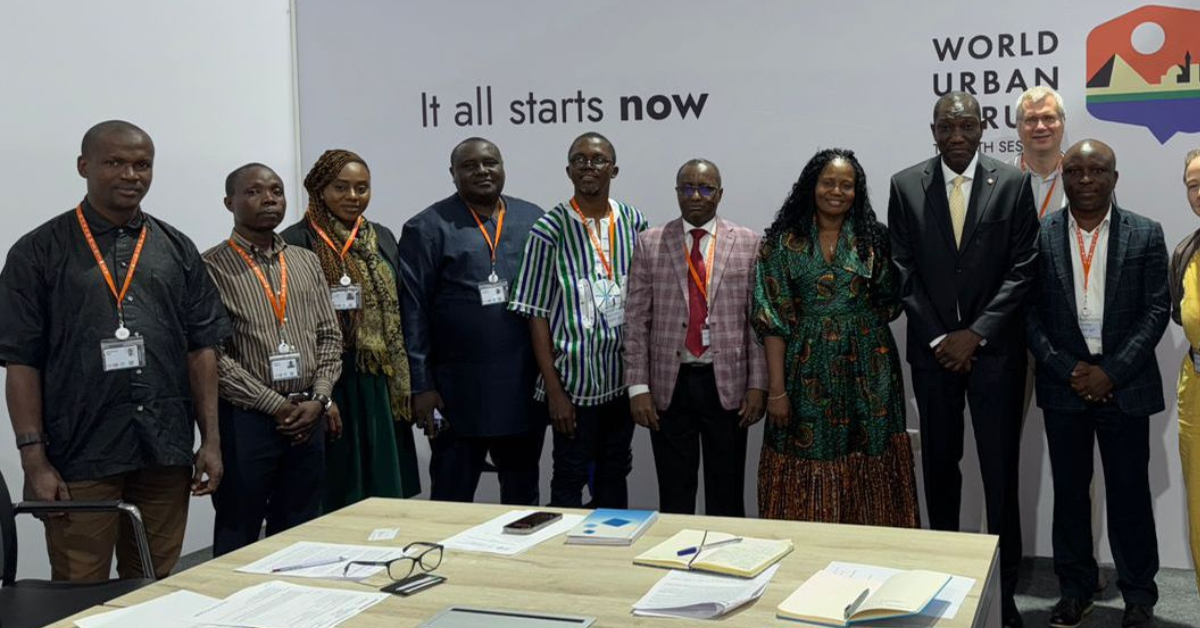Sierra Leone has taken a significant step toward advancing urban and land reform through strengthened collaboration with UN-Habitat, as discussed during the ongoing World Urban Forum-12 in Cairo.
A key meeting, facilitated by UN-Habitat’s focal point for Sierra Leone, Saiid Conteh, brought together top officials, including Oumar Sylla, Head of the Africa Regional Office, and Mr. Mathias Spaliviero, Senior Human Settlements Officer and West Africa Sub-Regional Hub Head, to address Sierra Leone’s pressing housing and land management challenges.
The high-level discussion underscored the urgent need for project funding to build capacity in sectors critical to urban reform. The objective is to establish sustainable land governance, resolve housing issues, and foster inclusive urban growth.
Phylis Kormoh (Kapu), Sierra Leone’s Deputy Minister of Lands, Housing, and Country Planning, reiterated President Julius Maada Bio’s commitment to institutionalize land sector reforms.
Key to this commitment is the drafting of the upcoming Country Planning Act 2024, part of a broader legislative reform strategy aimed at climate-resilient urban development, improved land tenure security, equitable land access, and effective land administration.
Dr. Alphajoh Cham, Project Coordinator of the Sierra Leone Land Administration Project (SLLAP), highlighted recent progress in legislative reforms. Key initiatives include the enactment of the Customary Land Rights Act 2022 and the National Land Commission Act 2022, which established the National Land Commission as a central reform body.
In addition, a new Land Registration Act is underway, along with the implementation of a Land Management Information System (LMIS) to streamline land title registration.
Beyond legislative actions, Sierra Leone’s urban planning advancements are evident in the collaboration with UN-Habitat on projects such as the Sierra Leone Habitat III Report, the National Urban Policy, and the Urban Agriculture and Waste Wise City Study. These initiatives aim to create a more sustainable built environment and address urban challenges.
The partnership with UN-Habitat remains crucial for Sierra Leone as it seeks further capacity building, resource mobilization, and the development of a Master Spatial Plan for urban centers. This ongoing support will be essential to achieve sustainable, inclusive development goals.
This reinforced collaboration marks a new chapter in Sierra Leone’s urban governance journey. Through shared efforts with UN-Habitat, the country is poised to make substantial strides toward a resilient urban future, benefiting communities across Sierra Leone.











